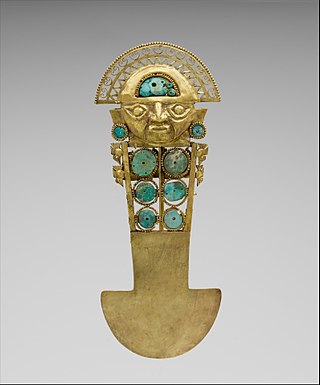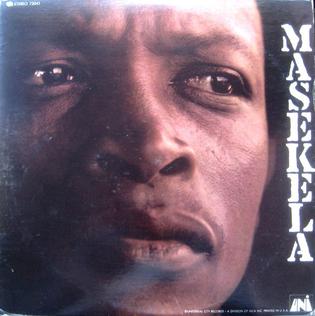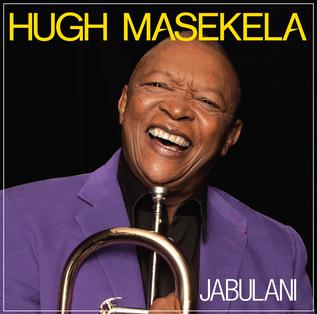Related Research Articles

Hugh Ramapolo Masekela was a South African trumpeter, flugelhornist, cornetist, singer and composer who was described as "the father of South African jazz". Masekela was known for his jazz compositions and for writing well-known anti-apartheid songs such as "Soweto Blues" and "Bring Him Back Home". He also had a number-one US pop hit in 1968 with his version of "Grazing in the Grass".
The Bassline live music venue and club was established in 1994 in the Melville neighborhood of Johannesburg, South Africa. The venue closed in 2003 and reopened the following year in the downtown Newtown Cultural Precinct, featuring a concert venue with a capacity of 1000 and a performing space with 150 seats. In its 24-year history, Bassline hosted over 3200 concerts featuring many emerging music acts and well-known South African, African, and global music icons.

Selema "Sal" Mabena Masekela is an American television host, sports commentator, actor and singer.

Tumi, is a generic term encompassing the many kinds of sharp tools utilized in pre- and post-colonial eras of the Central Andes region, Tumis were employed for a diverse set of purposes such as kitchen knives, agricultural tools, warrior or hunting secondary weapons, sacrificial knives, barber implements, pendants, or medical tools. In addition, the tumi form, in metal, was used as a type of coin. Pre-columbian Tumis were usually made of metal or stone.

"Grazing in the Grass" is an instrumental composed by Philemon Hou and first recorded by the South African trumpeter Hugh Masekela. Released in the United States as a single in 1968, it followed United States trumpeter Herb Alpert's vocal performance of "This Guy's in Love with You" to the top spot on the Hot 100 chart, ranking it as the 18th biggest hit of the year. The song also reached No. 15 Adult Contemporary. Masekela included the song in his albums Grazing in the Grass: The Best of Hugh Masekela (2001), Still Grazing (2004), and Live at the Market Theatre (2006).
Limpopo cricket team, also called the Limpopo Impalas, are a first-class cricket team representing Limpopo, the northernmost province of South Africa. Limpopo Impala Cricket has its headquarters in Polokwane, and the team plays their home games at the Polokwane Cricket Club Ground.

The 2010 FIFA World Cup opening ceremony took place on 11 June at the Soccer City stadium in Johannesburg, two hours before the opening match of the tournament. The ceremony started at 2pm local time and lasted 40 minutes. The ceremony involved 1500 performers, including American superstar R.Kelly, Thandiswa Mazwai, Timothy Moloi, Hugh Masekela, Khaled, Femi Kuti, Osibisa, TKZee, Hip Hop Pantsula and the Soweto Gospel Choir. During the ceremony, the tournament was declared opened by President Jacob Zuma.
"Bring Him Back Home (Nelson Mandela)", also known as "Bring Him Back Home", is an anthemic anti-apartheid protest song written by South African musician Hugh Masekela. It was released as the first track of his 1987 album Tomorrow. It was recorded in 1986 when Masekela was in exile from the apartheid regime of South Africa. The melody of the song is buoyant, containing a number of powerful chords and trumpet riffs. The lyrics of the song demand the release of Black South African leader Nelson Mandela, who had been imprisoned by the White South African government on Robben Island since 1962. The song became enormously popular, and turned into an unofficial anthem of the anti-apartheid movement. It became one of Masekela's most performed live songs. It was later used as a part of the official soundtrack to the documentary film Amandla!: A Revolution in Four-Part Harmony. The song was included in the 1994 live album Hope and in the 2001 collection Grazing in the Grass: The Best of Hugh Masekela, released by Columbia Records.

Trumpet Africaine: The New Beat from South Africa is the debut studio record (LP) by South African musician Hugh Masekela. It was recorded in New York City and released in August 1962 via Mercury Records. The album was released whilst Masekela was still in school.

The Emancipation of Hugh Masekela is the fifth studio album by South African jazz trumpeter Hugh Masekela. It was recorded in Los Angeles and released in 1966 via Chisa Records label. On this album he performs mostly his own songs. Tracks "Child of the Earth", "Felicidade", and "Ha Lese Le Di Khanna" were later included in his 2004 album Still Grazing.

The Lasting Impression of Hugh Masekela is a 1968 live album by South African jazz musician Hugh Masekela.

Masekela is the eleventh studio album by South African jazz trumpeter Hugh Masekela released via Uni Records label in 1969.

Introducing Hedzoleh Soundz is the fifteenth studio album by South African trumpeter Hugh Masekela. It was recorded in Lagos, Nigeria, and released in 1973. The track "Languta" was later included in Masekela's 2004 album Still Grazing.

Herb Alpert / Hugh Masekela is collaborative studio album by Herb Alpert and Hugh Masekela. It was recorded in Hollywood, California, and released in 1978 via A&M Records and Horizon Records labels.

Main Event Live is collaborative live album by Herb Alpert and Hugh Masekela. It was recorded in Los Angeles, California, and released in 1978 via A&M Records label.

Still Grazing: The Musical Journey of Hugh Masekela is an autobiography book by South African trumpeter Hugh Masekela. It was released on May 11, 2004 by Crown Archetype. The book was written together with D. Michael Cheers. In this book, Masekela tells a story of his forty-year career in the world of African jazz and his travels from South Africa to New York, then to Jamaica, and then back to his homeland. The book is complemented by the album of the same name.

Hope is a 1994 live album by South African jazz trumpeter Hugh Masekela.

Live at the Market Theatre is a double live album by South African jazz trumpeter Hugh Masekela. The record was released on 17 July 2007 via Four Quarters Entertainment label. The album consists of 15 tracks recorded in June 2006 during his two-and-a-half-hour concert in The Market Theatre in Johannesburg. A follow-up DVD was released on 31 July 2007.

Jabulani is a studio album by South African jazz trumpeter Hugh Masekela. The record was released on 31 January 2012 via Listen 2 label in the USA and via Gallo Record Company label in South Africa. The Zulu word jabulani translates as: to be happy, or to bring joy and happiness. Recorded in Pretoria, South Africa, the album is a collection of re-interpreted traditional South African wedding songs.
The 2017 DStv Mzansi Viewers' Choice Awards ceremony was held on August 26, 2017 at Sandton Convention Centre, Johannesburg. The awards honoured the year's achievements in television, music, sports, and comedy voted by viewers in South Africa.
References
- ↑ "Tumi Masekela". ESPN Cricinfo. Retrieved 5 November 2015.